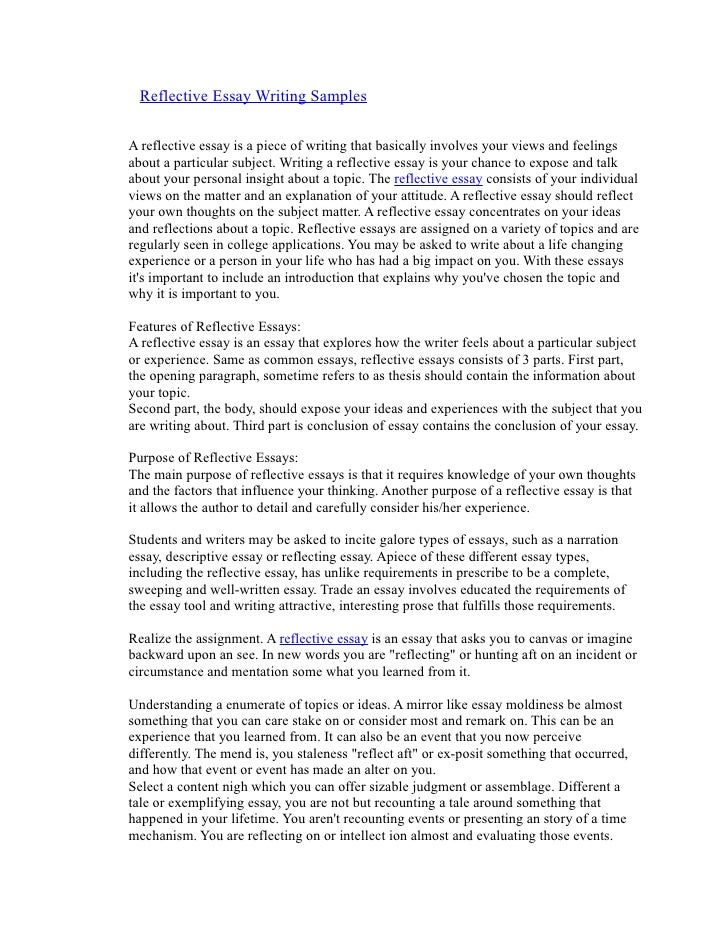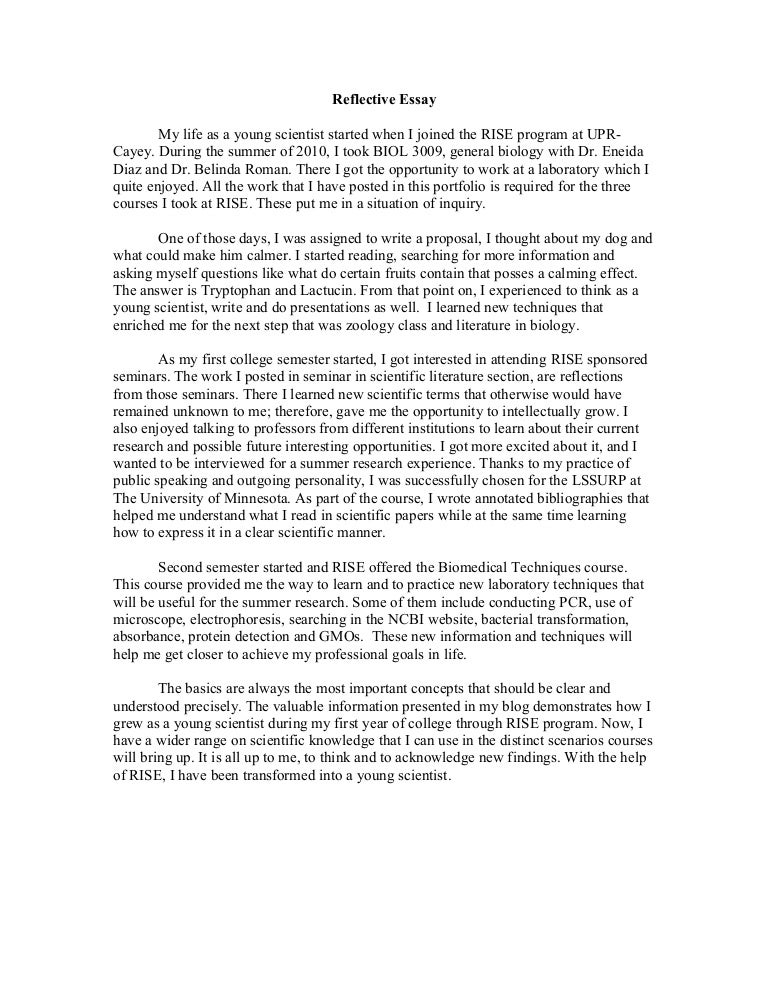
4. Learn how to structure your essay
· Here’s a simple process you can use to get everything ready before you start writing: a) Scan your mind in search of powerful experiences, meaningful memories, and thoughts about your past. This will serve as a raw material from which you’ll sculpt a piece of prose. b) Consider the attractiveness of your topic from the reader’s point of view · The first step of writing a great reflective essay is choosing a topic, so choose wisely! Example: " I'm visiting my mom who lives near the beach that I went to a lot growing up, so I'm going to write about that." 2. Study Your Subject Depending on your topic, you may need to close your eyes and remember, read, watch, listen, or imagine · – Write using the first-person narrative, ensuring that the tone of your essay is very personal and reflective of your character. – If you need to, refer back to our notes earlier on creating an outline. As you work through your essay, present your thoughts systematically, remembering to focus on your key learning outcomes

Personal Reflective Sample
· What Not to Do When Writing a Reflective Essay. Write in the first-person. Write in the third-person. Include a description of the experience or event from your own unique point of view. Gather data from various participants, and create an objective account of the event from various subjective perspectives · – Write using the first-person narrative, ensuring that the tone of your essay is very personal and reflective of your character. – If you need to, refer back to our notes earlier on creating an outline. As you work through your essay, present your thoughts systematically, remembering to focus on your key learning outcomes How to Start a Reflective Essay Correctly 1. Being catchy is the key. In writing your reflective essay, you must start with something that would captivate the 2. Write the thesis statement in one sentence. A thesis statement refers to the sentence
Why You Should Know How To Write A Reflective Essay
· What Not to Do When Writing a Reflective Essay. Write in the first-person. Write in the third-person. Include a description of the experience or event from your own unique point of view. Gather data from various participants, and create an objective account of the event from various subjective perspectives · Here’s a simple process you can use to get everything ready before you start writing: a) Scan your mind in search of powerful experiences, meaningful memories, and thoughts about your past. This will serve as a raw material from which you’ll sculpt a piece of prose. b) Consider the attractiveness of your topic from the reader’s point of view How to Start a Reflective Essay Correctly 1. Being catchy is the key. In writing your reflective essay, you must start with something that would captivate the 2. Write the thesis statement in one sentence. A thesis statement refers to the sentence

Thinking About the Tone of Your Reflective Essay
· The first step of writing a great reflective essay is choosing a topic, so choose wisely! Example: " I'm visiting my mom who lives near the beach that I went to a lot growing up, so I'm going to write about that." 2. Study Your Subject Depending on your topic, you may need to close your eyes and remember, read, watch, listen, or imagine · – Write using the first-person narrative, ensuring that the tone of your essay is very personal and reflective of your character. – If you need to, refer back to our notes earlier on creating an outline. As you work through your essay, present your thoughts systematically, remembering to focus on your key learning outcomes How to Start a Reflective Essay Correctly 1. Being catchy is the key. In writing your reflective essay, you must start with something that would captivate the 2. Write the thesis statement in one sentence. A thesis statement refers to the sentence

Simple Steps For Writing A Reflective Essay
· The first step of writing a great reflective essay is choosing a topic, so choose wisely! Example: " I'm visiting my mom who lives near the beach that I went to a lot growing up, so I'm going to write about that." 2. Study Your Subject Depending on your topic, you may need to close your eyes and remember, read, watch, listen, or imagine · – Write using the first-person narrative, ensuring that the tone of your essay is very personal and reflective of your character. – If you need to, refer back to our notes earlier on creating an outline. As you work through your essay, present your thoughts systematically, remembering to focus on your key learning outcomes · A clear understanding of h ow the experience has influenced you. A good understanding of the principles and theories of your subject area. Ability to frame a problem before implementing a solution. These seven criteria form the principles of writing an excellent reflective blogger.comted Reading Time: 9 mins
No comments:
Post a Comment